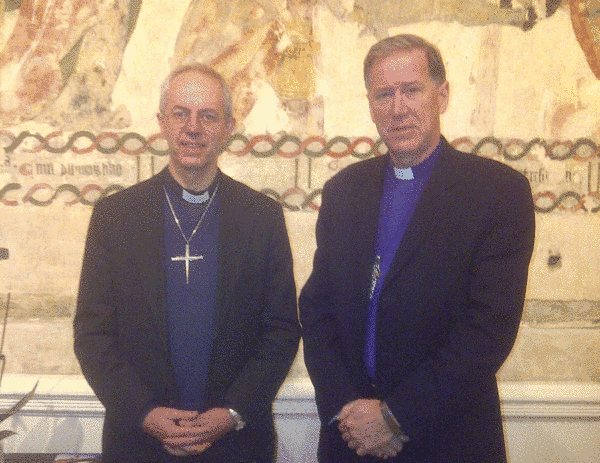It’s all about the UN Millennium goals, and speaking up for – not, you will note, directly helping, a task too difficult for today’s enervated mainline denominations – the poor.
Instead of celebrating the most important event in the universe’s history, the arrival of the Incarnate God, born of a Virgin, sinless, sacrificed for us and our only means of reconciliation with the Father, we have prosaic, idolatrous utopianism. A religion emptied of transcendence.
From here:
With Christmas approaching, Archbishop Fred Hiltz today urged Anglicans, via a CBC radio interview, to think about the poor and disadvantaged, saying the church “must be in the world and for the world” as Jesus Christ was.
In the gospels, “we see quite clearly that he [Jesus] cared as much for people’s physical well-being as their spiritual well-being,” Hiltz said when asked by CBC Toronto Metro Morning’s Matt Galloway about why he’s asking Anglicans to become stronger advocates for social justice. “The church has a moral obligation, rooted in the gospel and in the teaching of the prophets long before Jesus. We have a moral obligation…to speak up for those who are disadvantaged, for the poor and for the downtrodden.”
[….]
Hiltz noted that eliminating extreme hunger and poverty was one of the UN Millennium goals (to which Anglicans worldwide have been asking their governments to demonstrate commitment).


 One of Fred Hiltz’s recurring nightmares is that Canterbury recognises ANCA and ANiC, making ACNA an official North American Anglican province with ANiC as one of its dioceses. In order to forestall this calamity, Hiltz has taken his “ongoing concern” to Justin Welby.
One of Fred Hiltz’s recurring nightmares is that Canterbury recognises ANCA and ANiC, making ACNA an official North American Anglican province with ANiC as one of its dioceses. In order to forestall this calamity, Hiltz has taken his “ongoing concern” to Justin Welby.